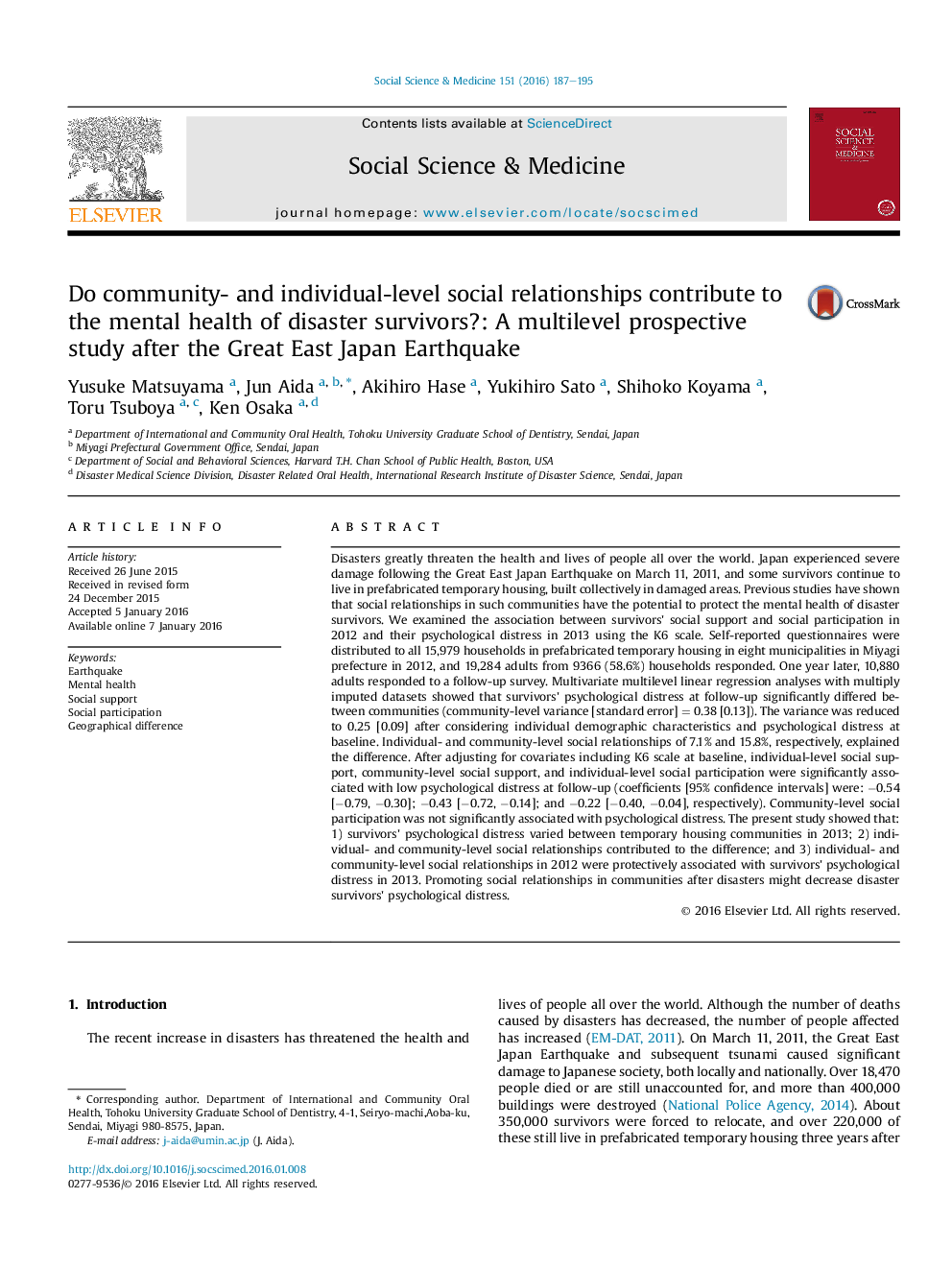| Article ID | Journal | Published Year | Pages | File Type |
|---|---|---|---|---|
| 7330761 | Social Science & Medicine | 2016 | 9 Pages |
Abstract
Disasters greatly threaten the health and lives of people all over the world. Japan experienced severe damage following the Great East Japan Earthquake on March 11, 2011, and some survivors continue to live in prefabricated temporary housing, built collectively in damaged areas. Previous studies have shown that social relationships in such communities have the potential to protect the mental health of disaster survivors. We examined the association between survivors' social support and social participation in 2012 and their psychological distress in 2013 using the K6 scale. Self-reported questionnaires were distributed to all 15,979 households in prefabricated temporary housing in eight municipalities in Miyagi prefecture in 2012, and 19,284 adults from 9366 (58.6%) households responded. One year later, 10,880 adults responded to a follow-up survey. Multivariate multilevel linear regression analyses with multiply imputed datasets showed that survivors' psychological distress at follow-up significantly differed between communities (community-level variance [standard error] = 0.38 [0.13]). The variance was reduced to 0.25 [0.09] after considering individual demographic characteristics and psychological distress at baseline. Individual- and community-level social relationships of 7.1% and 15.8%, respectively, explained the difference. After adjusting for covariates including K6 scale at baseline, individual-level social support, community-level social support, and individual-level social participation were significantly associated with low psychological distress at follow-up (coefficients [95% confidence intervals] were: â0.54 [â0.79, â0.30]; â0.43 [â0.72, â0.14]; and â0.22 [â0.40, â0.04], respectively). Community-level social participation was not significantly associated with psychological distress. The present study showed that: 1) survivors' psychological distress varied between temporary housing communities in 2013; 2) individual- and community-level social relationships contributed to the difference; and 3) individual- and community-level social relationships in 2012 were protectively associated with survivors' psychological distress in 2013. Promoting social relationships in communities after disasters might decrease disaster survivors' psychological distress.
Related Topics
Health Sciences
Medicine and Dentistry
Public Health and Health Policy
Authors
Yusuke Matsuyama, Jun Aida, Akihiro Hase, Yukihiro Sato, Shihoko Koyama, Toru Tsuboya, Ken Osaka,
